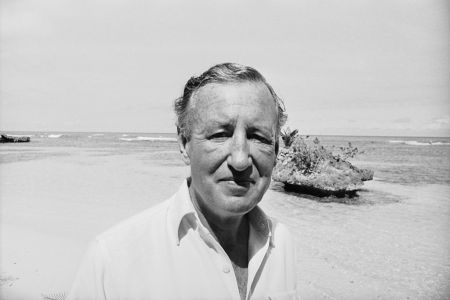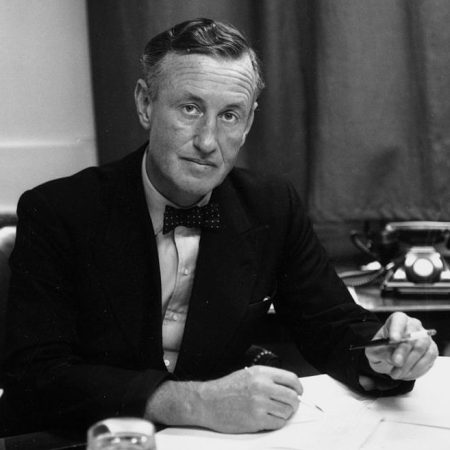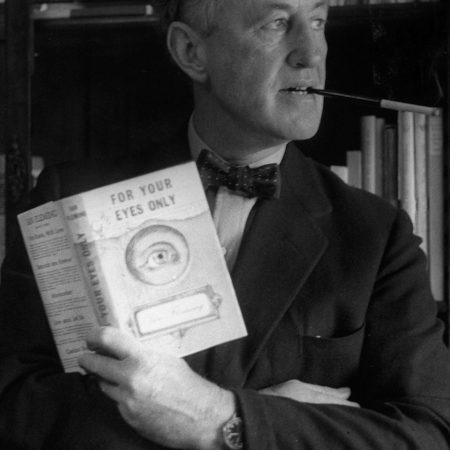It’s no understatement to say that Ian Fleming’s life has been explored in a host of mediums in the almost 60 years since his death in August of 1964. Perhaps not quite as much as the life of his most famed creation, James Bond — but stil, far more than most writers. A decade ago, the miniseries Fleming: The Man Who Would Be Bond brought his life to the small screen; Fleming also shows up as a character in the films Operation Mincemeat and The Ministry of Ungentlemanly Warfare. What, then, accounts for the appeal of revisiting his life in another medium?
“What convinced me to write the book was discovering that his war work was indeed significant, as well as how much kinder he was in life than his posthumous caricature suggested,” writer Nicholas Shakespeare told Publishers Weekly about his new book on Fleming, Ian Fleming: The Complete Man. The book has earned rave reviews so far — at Booklist, David Pitt called it “an absolutely fascinating story full of astonishing career moves.” These include his wartime actions, which provided the foothold into espionage from which Bond was born.
In a deep dive into the book for Air Mail, Pico Iyer pointed to an aspect of the book that he found particularly compelling: its depictions of interpersonal drama and social clashes that feel — in Iyer’s description — like something out of P.G. Wodehouse rather than a spy thriller.
How Ian Fleming’s Wartime Espionage Shaped James Bond
A look at the experiences that informed a spy novelist, including Operation Golden Eye“[I]t is the crafty genius of Shakespeare’s surely definitive account to suggest that Fleming had, in spades, the upper-class Brit’s gift for concealing both his talents and his intelligence,” Iyer writes. And it helps to explain why, when much of Fleming’s life has already been discussed, Bond aficionados and those drawn to writers’ lives may find this book thoroughly compelling.
This article was featured in the InsideHook newsletter. Sign up now.



















